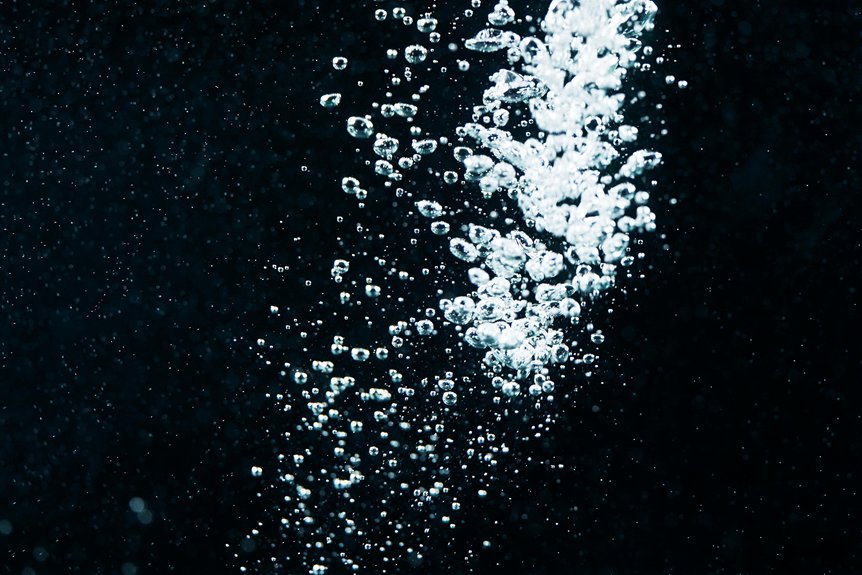If your gas hot water system isn’t working, it can be frustrating. There are several common issues that could be behind the problem. You might be dealing with a faulty thermostat, gas supply interruptions, or even sediment buildup in the tank. Understanding these factors is essential to restore your hot water. Let’s explore the potential causes and solutions to get your system back on track.
Key Takeaways
You are trained on data up to October 2023
- Check the thermostat settings; incorrect calibration may disrupt hot water delivery.
- Ensure the pilot light is lit; relight if necessary for heating to resume.
- Inspect for any interruptions in the gas supply, which can halt water heating.
- Look for clogged filters or vents that may hinder the system’s performance.
- Consider flushing the tank to remove sediment buildup, which can reduce efficiency.
Common Issues With Gas Hot Water Systems
When your gas hot water system fails to deliver hot water, it can stem from various common issues.
One major concern is gas leak detection. If the system detects a gas leak, it’ll automatically shut down for safety, preventing hot water delivery.
Additionally, the pressure relief valve may be malfunctioning, causing pressure buildup within the tank. This can lead to overheating or system failure.
Regular maintenance checks are essential to ensure these components function properly.
Diagnosing Temperature Fluctuations
When your hot water temperature fluctuates, the first step is to check the thermostat settings to ensure they’re set correctly.
Next, confirm that the pilot light is on; a malfunctioning pilot can disrupt heating.
Addressing these two points can often resolve temperature inconsistencies in your gas hot water system.
Thermostat Settings Check
Could your thermostat settings be causing those frustrating temperature fluctuations in your gas hot water system?
Start by checking the thermostat calibration. If it’s off, even slightly, your hot water temperature may not meet your needs.
Adjust the temperature setting according to manufacturer specifications, typically between 49°C and 60°C. Remember, improper temperature adjustment can lead to scalding or lukewarm water.
After making adjustments, wait a few hours and test the water temperature again.
If fluctuations persist, it could indicate other issues, but ensuring correct thermostat settings is an essential first step in diagnosing the problem effectively.
Pilot Light Status
The pilot light plays an essential role in maintaining consistent temperatures in your gas hot water system.
If you’re experiencing temperature fluctuations, start with pilot light troubleshooting. Check if the light is lit; if it’s out, relight it according to the manufacturer’s instructions.
If it keeps going out, consider potential issues like a faulty thermocouple or draft interference. In some cases, a pilot light replacement may be necessary.
Always verify the gas supply is steady and the venting system is clear. By diagnosing these components, you can effectively and efficiently restore reliable hot water temperatures.
No Hot Water: Possible Causes
Experiencing no hot water can be frustrating, and several factors might be at play. Understanding these causes can enhance your energy efficiency and guarantee ideal water quality.
Here are some possible reasons for your hot water issues:
- Thermostat malfunction
- Gas supply interruption
- Clogged filters or vents
- Sediment buildup in the tank
- Faulty heating element
Investigating these areas can help you pinpoint the issue.
Regular maintenance and monitoring can also prevent future problems, ensuring your hot water system operates efficiently and effectively.
Don’t hesitate to consult a professional if you’re uncertain about diagnosing or fixing the problem.
Strange Noises From Your Hot Water System
Strange noises from your hot water heater can signal underlying issues that need attention. If you hear banging pipes or unusual vibrations, it’s essential to investigate further. These sounds often indicate sediment buildup, loose components, or pressure changes within your system.
| Noise Type | Possible Cause | Recommended Action |
|---|---|---|
| Banging | Water hammer | Check pressure relief |
| Humming | Electrical issue | Inspect wiring |
| Rattling | Loose parts | Tighten connections |
| Gurgling | Sediment accumulation | Flush the tank |
| Whistling | Pressure imbalance | Adjust pressure settings |
Address these issues promptly to ensure your hot water system functions efficiently.
Maintenance Tips for Your Gas Hot Water System
To ensure your gas hot water system operates efficiently, establish a regular flushing schedule to remove sediment buildup.
Additionally, check the ventilation system to prevent any blockages that could affect performance.
These maintenance tasks can extend the life of your unit and improve its efficiency.
Regular Flushing Schedule
Maintaining a regular flushing schedule for your gas hot water system is essential to guarantee its efficiency and longevity. A consistent flushing frequency helps remove sediment buildup, which can hinder performance and lead to costly repairs.
Here are some flushing benefits to keep in mind:
- Improves heat transfer efficiency
- Reduces the risk of corrosion
- Enhances water quality
- Increases system lifespan
- Saves on energy costs
Aim to flush your system at least once a year.
Inspect Ventilation System
Since proper ventilation is essential for the safe and efficient operation of your gas hot water system, you should regularly inspect the ventilation system for any blockages or damage.
Check both direct and indirect ventilation types to guarantee unobstructed air flow. Look for debris, dirt, or corrosion that could impede performance. Make sure vents are securely connected and free from leaks.
If you notice signs of insufficient air flow, such as unusual noises or odours, address these issues promptly. Regular maintenance not only enhances efficiency but also guarantees safety, preventing potential hazards associated with poor ventilation in your gas hot water system.
When to Call a Professional Plumber
If your gas hot water system isn’t functioning properly, it’s crucial to recognise when it’s time to call a professional plumber.
You should seek assistance when:
- You smell gas or notice a gas leak.
- The water temperature fluctuates considerably.
- There’s no hot water after troubleshooting.
- You hear unusual noises from the system.
- You require emergency services outside regular hours.
Hiring a qualified plumber guarantees you get expert diagnosis and repair.
Always check their plumber qualifications to confirm they’ve the necessary training and experience to handle your gas hot water system effectively.
Verify the plumber’s qualifications to ensure they have the expertise needed for your gas hot water system.
Don’t risk safety; call a professional when in doubt.
Conclusion
To summarise, if your gas hot water system isn’t working, don’t let frustration boil over. By regularly checking the thermostat, pilot light, and gas supply, you can often pinpoint the issue before it escalates. Remember, routine maintenance is your best mate in preventing future problems. When in doubt, calling a professional plumber can save you time and hassle. After all, wouldn’t you rather enjoy a warm shower than wrestle with plumbing issues?





